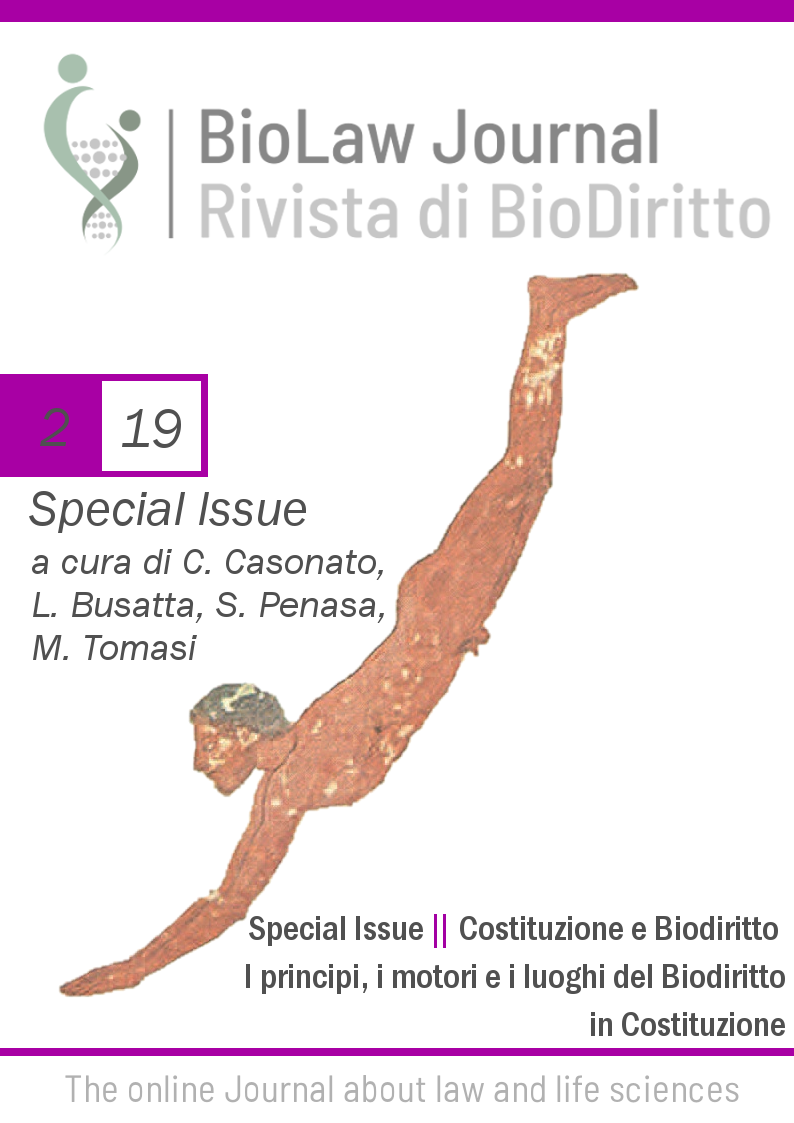La deontologia medica come “motore” della Costituzione
DOI:
https://doi.org/10.15168/2284-4503-473Parole chiave:
Medical ethics, Constitutional law, biolaw, professional autonomy and responsibility, fundamental rightsAbstract
The paper addresses the issue of whether and how the code of medical ethics (CME) has acted as – and can still be considered the “engine” of constitutional principles. Starting from the role of medical councils as public-interest bodies entrusted with functions that ultimately affect the protection of fundamental rights together with the professional practice itself, the paper analyses the historical evolution of the CME towards a wider protection of fundamental rights and, at the same time, towards the regulation of many sensitive and controversial bioethical issues. The essay then focuses on some of the most significant fields in which the updated versions of the CME, which has been repeatedly amended in parallel with the developments in bioethics and the leading cases at national and European level, performed a pivotal role in protecting, promoting and implementing constitutional rights and principles, especially by complementing or even predating other sources of law. Antinomies and tensions between medical ethics and constitutional principles, as well as some inconsistencies of the current Italian model, which prevent the CME form properly act as an “engine” of constitutional principles are also stressed.





